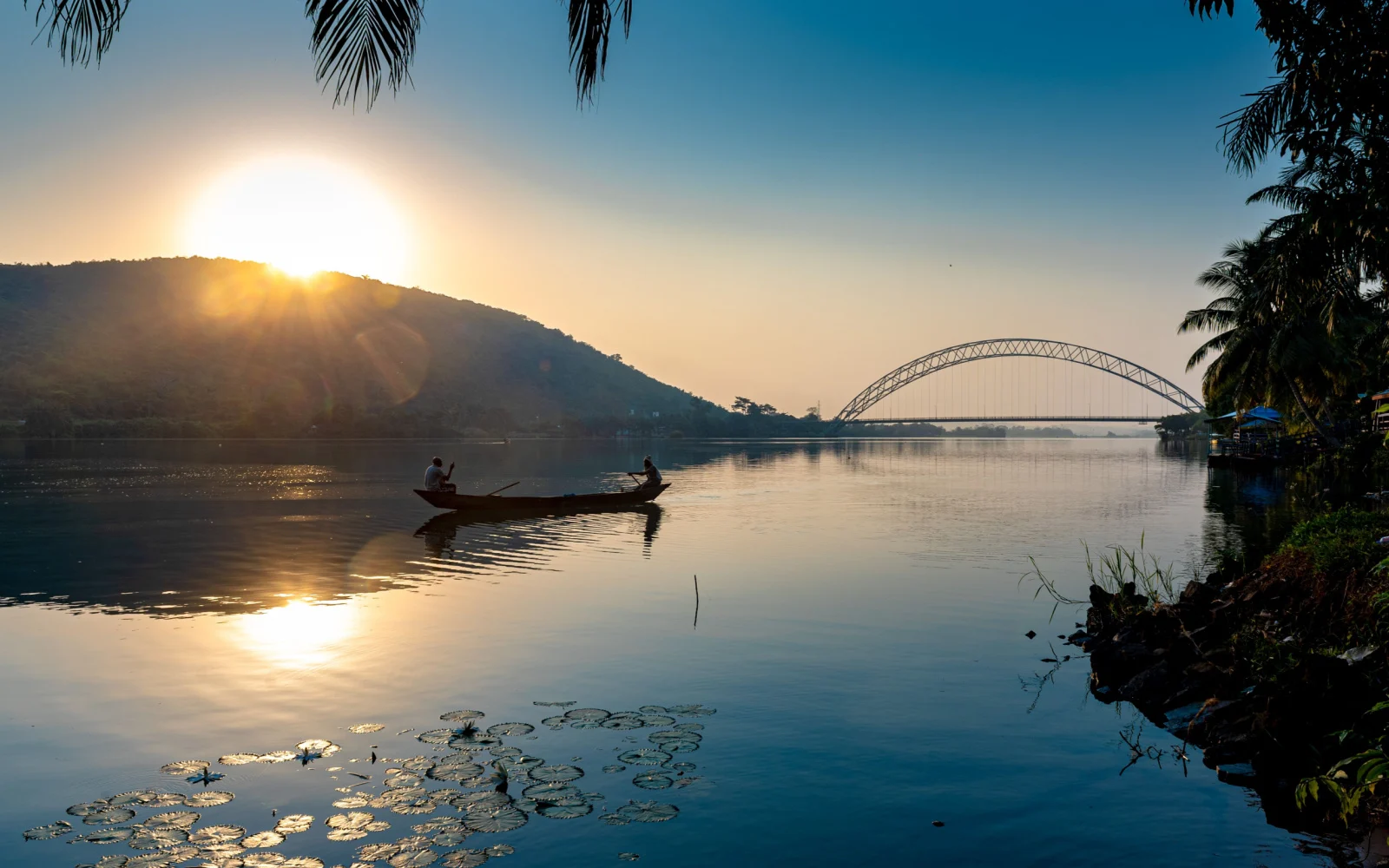What's the best time to visit Ghana?
The optimal time to visit Ghana is during the dry season from October to March, featuring warm weather and clear skies perfect for beach lounging and wildlife safaris. This period also boasts vibrant cultural festivals and lively nightlife, especially with events like the AfroFuture festival. But keep in mind the harmattan wind, prevalent in late December and January, which can impact visibility and cause dry skin.
Ghana is one of the most popular destinations for travelers visiting the continent of Africa thanks to its rich history and its vibrant modern cities.
Ghana has a long, rich history, with some tragic eras such as the awful slave trade commemorated at Cape Coast Castle, and some opulent, such as the days of the Ashanti kings. The country also has beautiful nature, especially the coastline, which also has a hotspot for surfers at Cape Three Points.
By far the biggest reason people want to come to Ghana is the vibrant modern culture, from the artisanal handcrafts in the village to the exciting fusion of modern and traditional cuisine.
Its cities, such as the capital Accra, are home to exciting artists, designers, and nightlife. But you’ll have to know the best time to visit Ghana to make the most of your trip. Read on to learn all you need to know!
The Overall Best Time to Visit Ghana
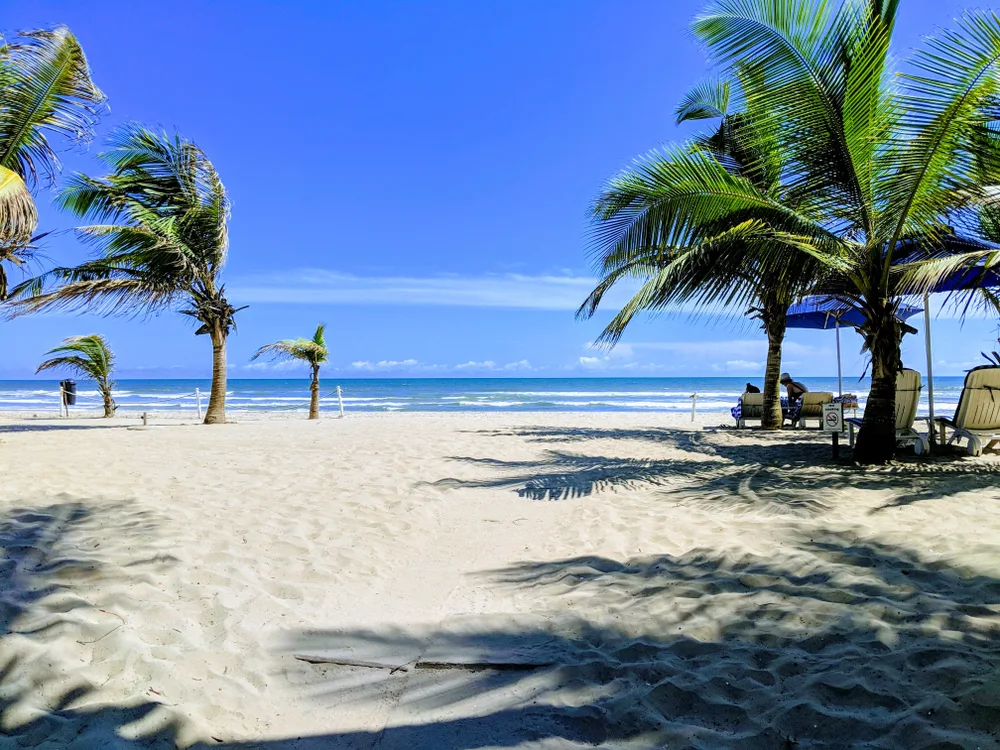
Eappiah/Shutterstock
The best time to visit Ghana is from October to March, when the weather is the best and there are plenty of cultural festivals. Ghana has a tropical climate, which means that instead of having the continental four seasons you may be used to, it has a rainy and a dry season.
This lasts from late October to March, making it the best time to visit. The temperature doesn’t fluctuate as much in Ghana depending on the season.
The daily high temperature rarely dips below 80 degrees Fahrenheit, even during the coolest months of July and August. The biggest difference between seasons is in cloud cover and rain. The clearest months are December and January.
The months between November and April also have the lowest chance of precipitation (although some parts of the country, such as Accra, also have a second dry season in July and August).
The dry weather means that you can spend all the time outdoors that you want. Even more remote areas of the country are navigable during the dry season. The weather is perfect for lounging on the beach in one of Ghana’s many coastal resorts.
The dry weather is also a benefit if you want to go on one of Ghana’s other popular activities — a wildlife safari. Visit parks such as the world-famous Mole National Park and you’ll have a high chance of spotting wildlife such as elephants and roan antelopes.
You have a good chance of seeing wildlife during the dry season because the visibility is better and their migration patterns cluster around watering holes.
By going to a watering hole, you are almost guaranteed to see animals. November to March is also the best time to visit for culture and nightlife, including in the capital Accra.
Many music festivals and other events occur around this time, and the city’s nightclubs fill up with visitors from all over the world. December’s cultural calendar is dominated by the AfroFuture festival, which celebrates African music as well as innovation and entrepreneurship.
New Year’s Eve in Ghana is also a fun party, perfect for those looking to experience a night to remember. Keep in mind though that Accra tends to get very busy (and expensive) at the end of December because of these festivals.
During the dry season, you can also take in local cultural festivals such as:
- Edina Bronya, a tribal adaptation of Christmas (January)
- Dzawuwu, a tribal thanksgiving festival in the Volta region (February)
- Hogbetsotso, a village festival (November)
However, when visiting during the dry season, be prepared for the harmattan, a dry wind that comes down from the Sahara.
This wind blows desert dust throughout the country and can dry out your skin — you’ll soon see why the locals use shea butter so much! Visibility also goes down during harmattan days, which can affect photography plans.
You have a lower chance of getting affected by the harmattan at the beginning of the dry season, so try to time your visit to be during November or early December.
Cheapest Time to Visit Ghana
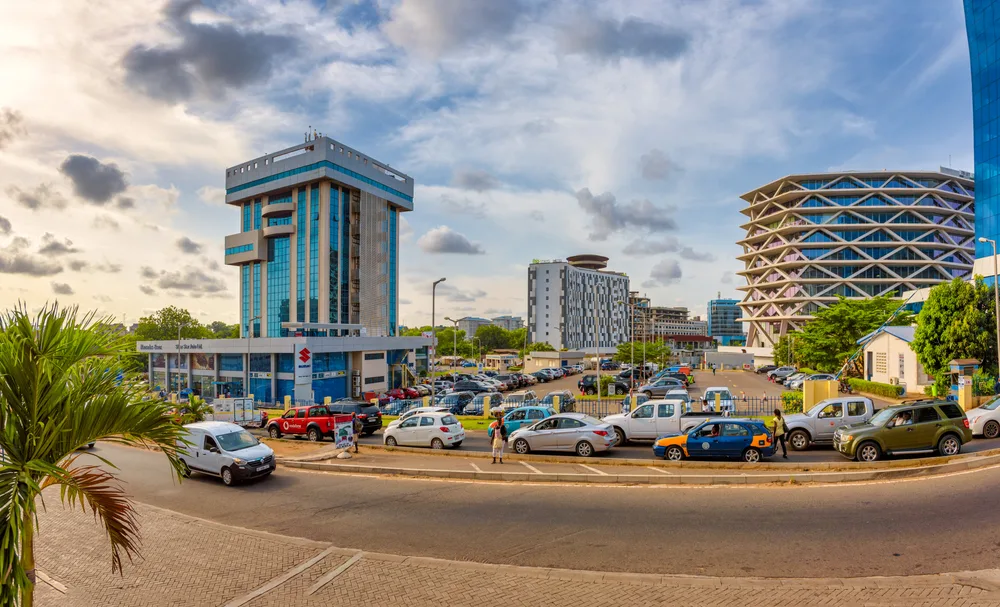
ACCRA,REPUBLIC OF GHANA – APRIL 30,2018:South Liberation Link view/Truba7113/Shutterstock
The cheapest time to visit Ghana is during the beginning or end of the rainy season, in April-May or September-October. The rainy season means that there is less demand from visitors, which in turn means that prices are lower.
Many hotels and resorts along the coast lower their rates, sometimes by up to 20%, meaning that you can get good discounts on even high-end rooms. During the late spring and early fall is also the least expensive time to get flights to Ghana.
There is less demand, so airlines adjust their prices accordingly. As long as you avoid Easter, mid-late spring is not in high demand for travel to Africa, so you can get good deals on flights.
Least Busy Time to Visit Ghana
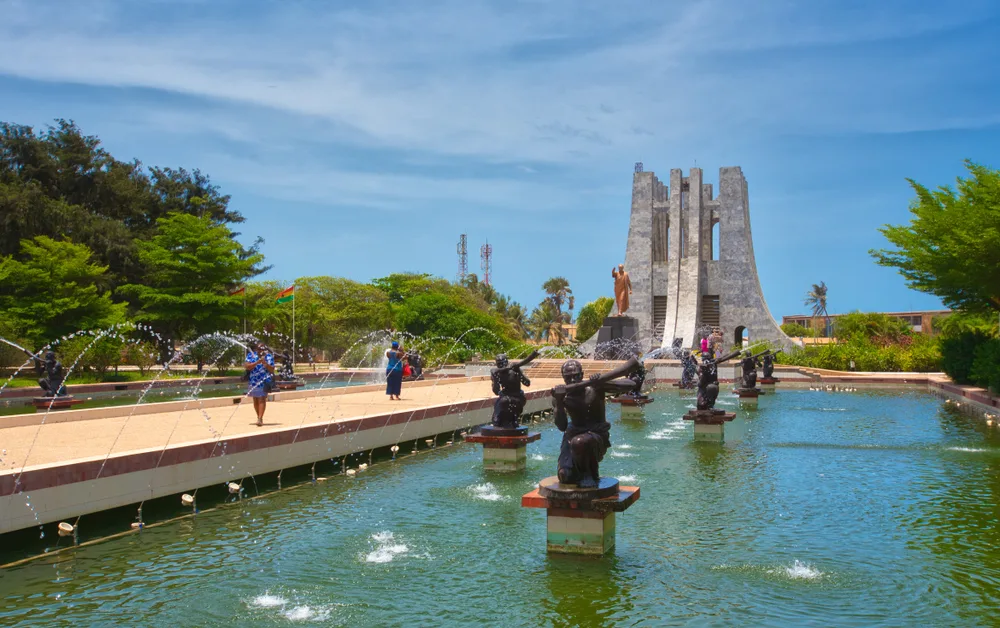
ACCRA,GHANA/MAY 1,2018: The Kwame Nkrumah Memorial Park and Mausoleum/Truba7113/Shutterstock
The least busy time to visit Ghana is during the rainy season, between April and October, especially towards the beginning or end of the season.
The rainier weather chases away many people during the April-May and September-October rainy seasons. However, if you are willing to bring a raincoat and brave the precipitation, you can have much of Ghana all to yourself.
A benefit of visiting during this time is that you can get to know the local culture better than during the whirlwind of the tourism high season. There are plenty of popular festivals, particularly during the fall, such as Fetu Afahye, a colorful yam festival. Many tribes hold harvest festivals during this time.
One thing to keep in mind is that there is a mini dry season in the middle of the rainy season, between mid-June and August. During this time, Ghana tends to receive lots of visitors, especially from Europe, so expect more crowds at popular resorts.
Worst Time to Visit Ghana
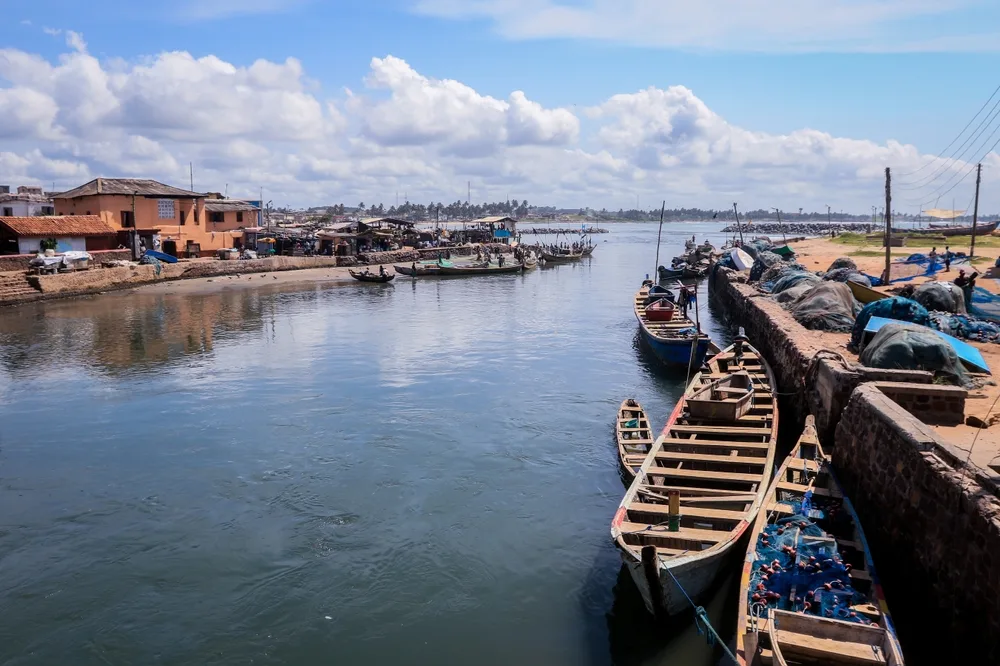
Dave Primov/Shutterstock
The worst time to visit Ghana is during the rainy season, between April and October, but even this season has its charms. Like many tropical destinations, Ghana receives persistent heavy downpours during the rainy season.
It’s not uncommon for it to rain every day during this season. While devastating storms are rare, localized flooding and sometimes even landslides are common.
However, visiting during the rainy season is not all bad. Ghana is actually one of the best countries to visit during the rainy season because it has good infrastructure, so much of the country is still navigable. Even the national parks are open, although with reduced capacity.
The summer in Ghana is also the best time for surfing according to websites that track surf conditions, with warm weather making it possible to surf in shorts, not wetsuits, and rains from the season providing the necessary swells.
Things to Consider
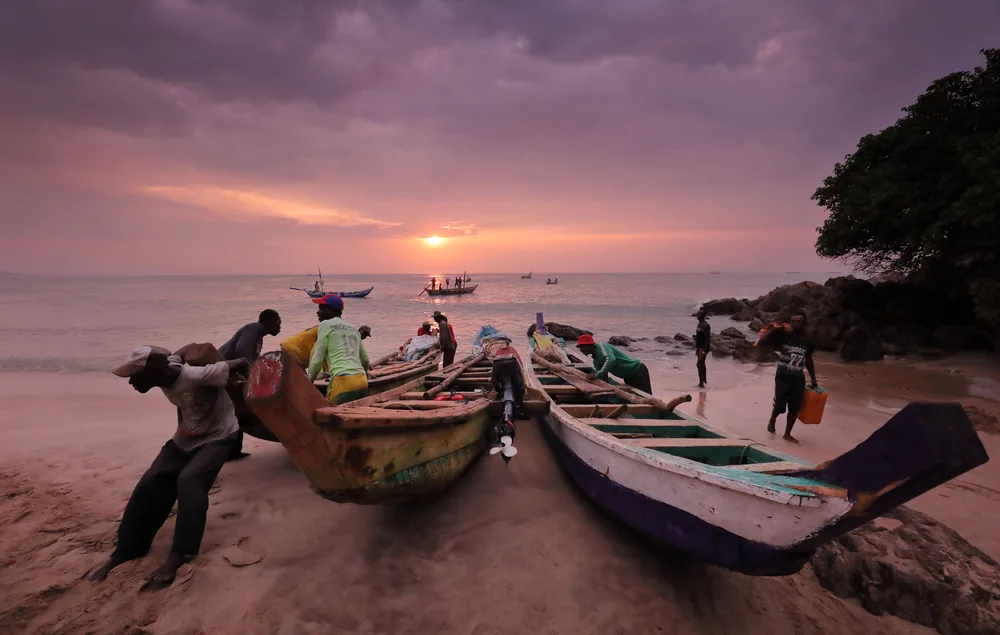
SENYA BERAKU – GHANA – AUGUST 25, 2017: Unidentified fisher launch a boat on August 25, 2017 in Senya Beraku, Ghana. Illegal fishing by foreign vessels threatens traditional fishing villages in Ghana/Dietmar Temps/Shutterstock
Here are some additional tips for picking the best time to visit Ghana:
- Be careful of the harmattan. The desert wind is no joke and can cause health problems such as eye conditions due to its drying properties. During harmattan days, mornings and evenings are also quite cool.
- The weather differs according to the region. The north tends to be rainier and cooler. The timing of the rainy season also differs in the north and south.
- Try to catch an Ashanti Akwasidae celebration. The powerful group hosts this celebration every six weeks, and you can even catch a glimpse of the king.
Frequently Asked Questions
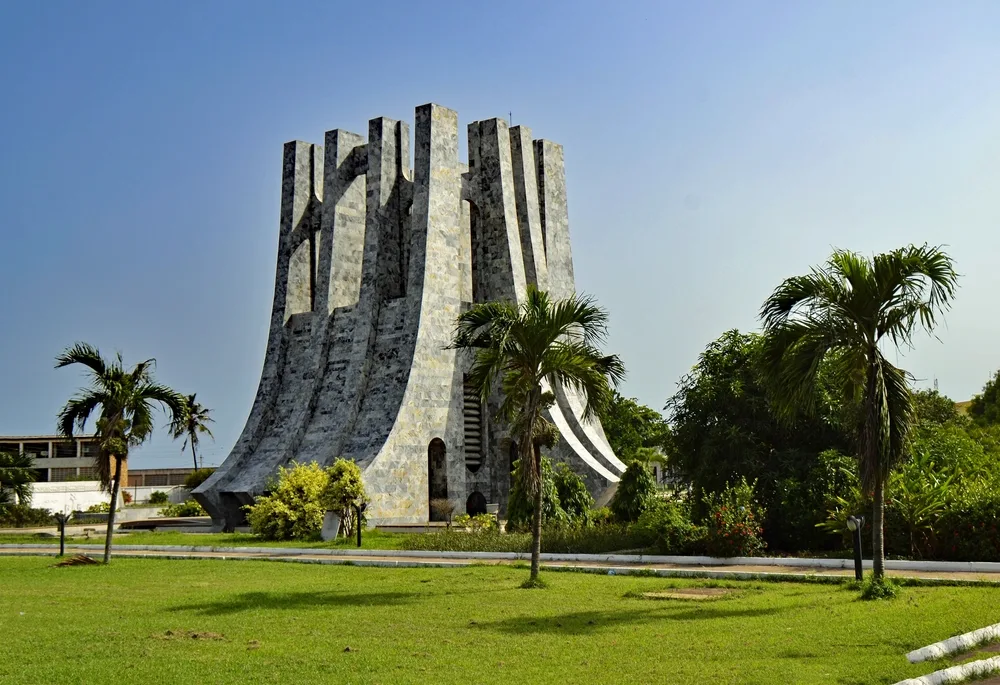
Gifty Amoatey/Shutterstock
Here are some common questions that can also help you plan your trip to Ghana:
What are the best months to go to Ghana?
The best months to go to Ghana are November to March, when the dry season means that you’ll have good weather for all your outdoor adventures.
When is the least expensive time of the year to go to Ghana?
The least expensive time of the year to go to Ghana is in the spring, April and May, when the high tourist season ends but summer hasn’t started yet.
When is the rainy season in Ghana?
The rainy season in Ghana lasts from April to June then again from September to early November, with a short break for the summer months.
So, What’s the Best Time to Visit Ghana?
The best time to visit Ghana is during the dry season, from November to April, when better weather allows you to try everything from surfing to elephant spotting. There are some benefits to visiting during the rainy season as well, such as lower prices, better surfing, and no harmattan desert winds.



